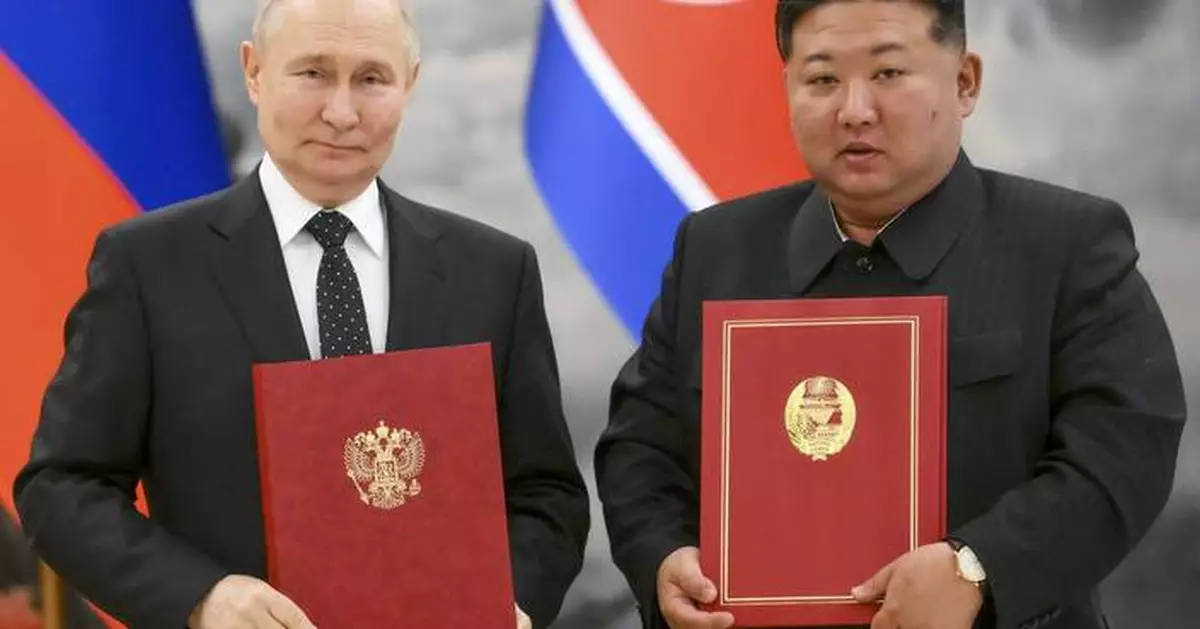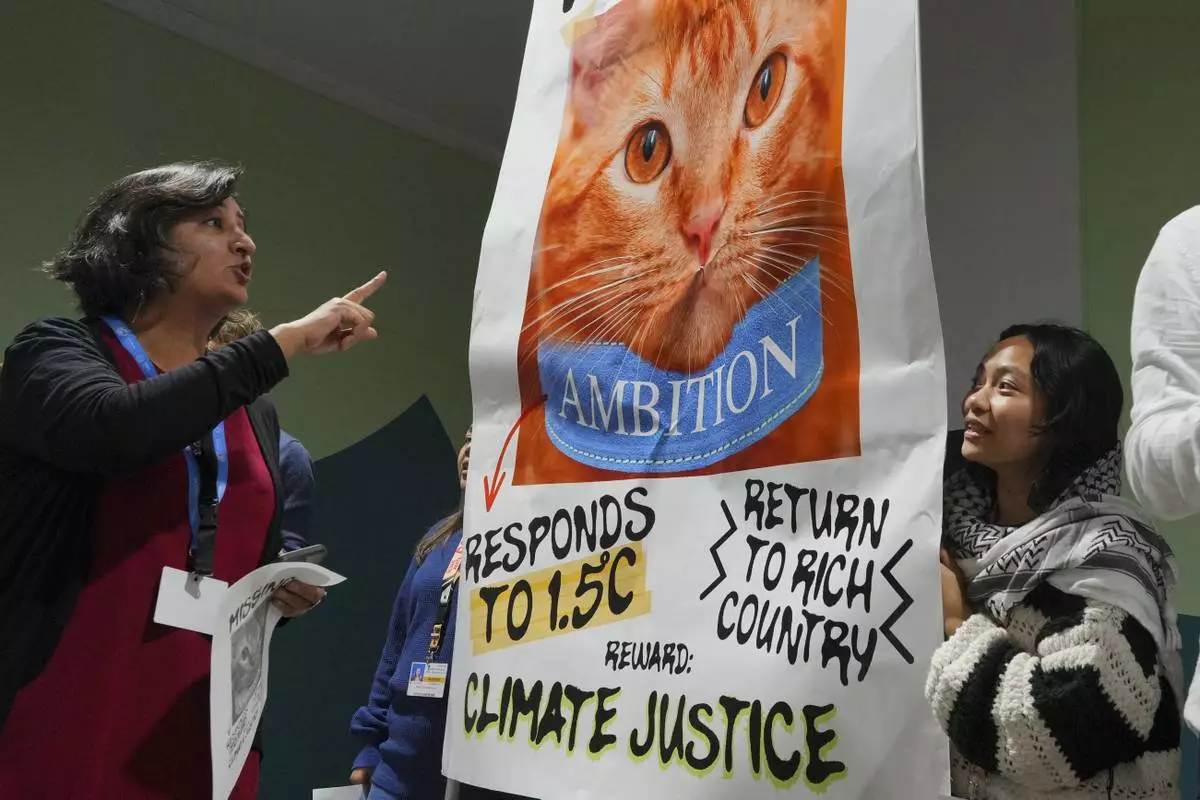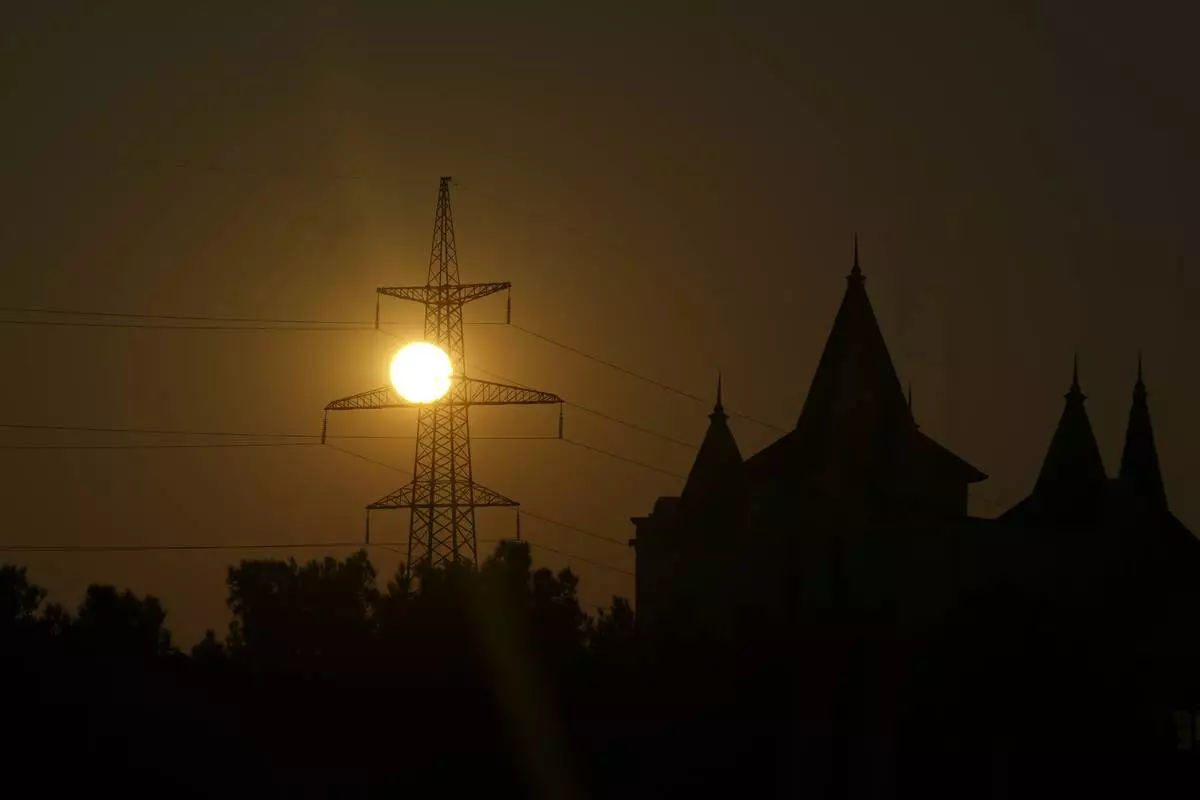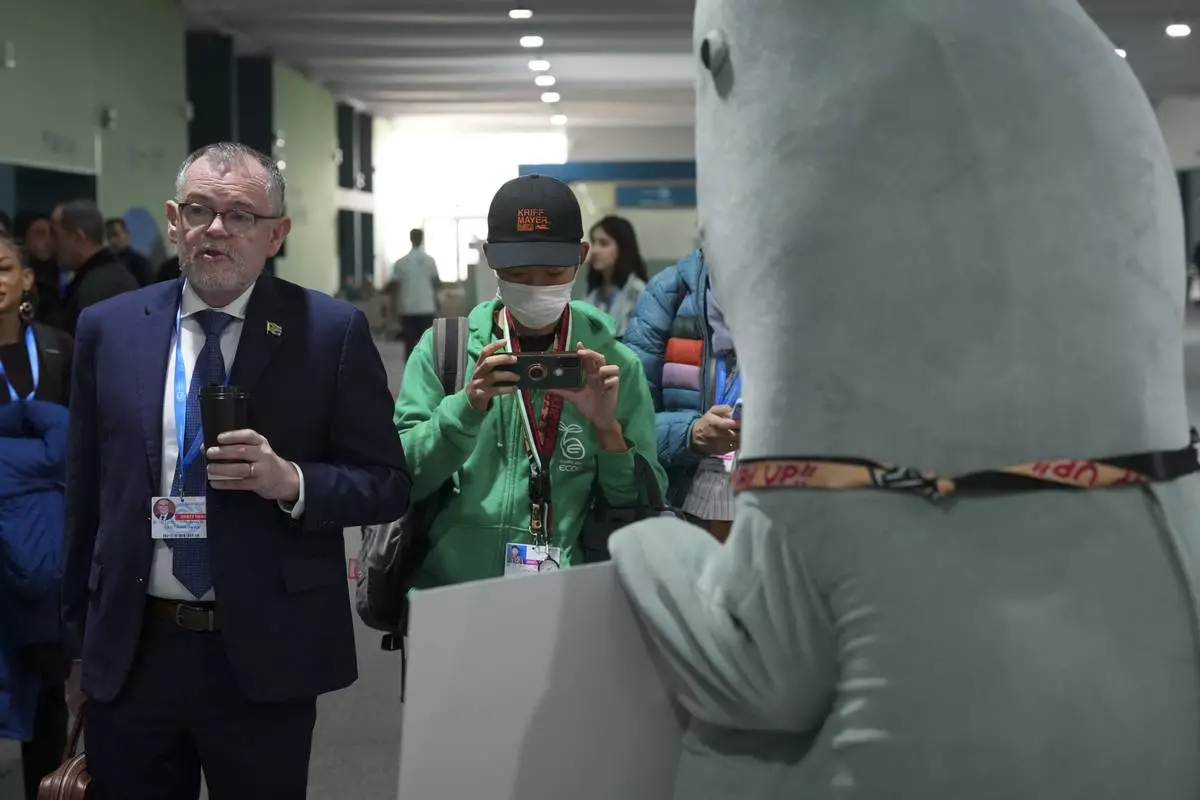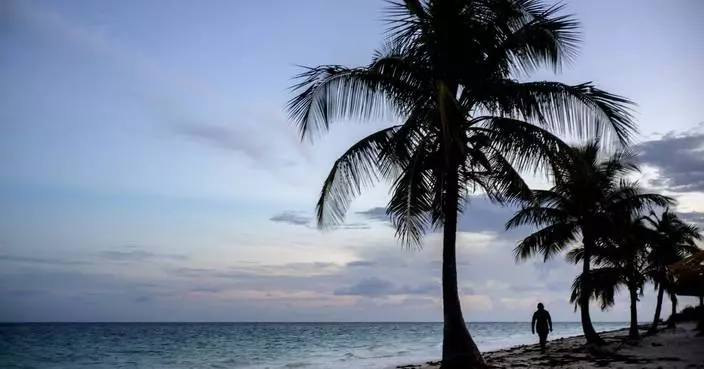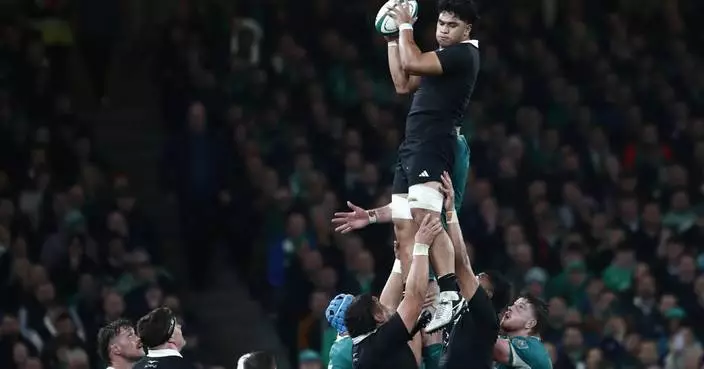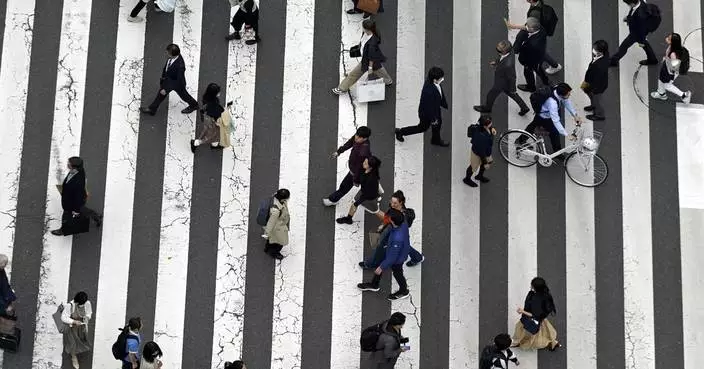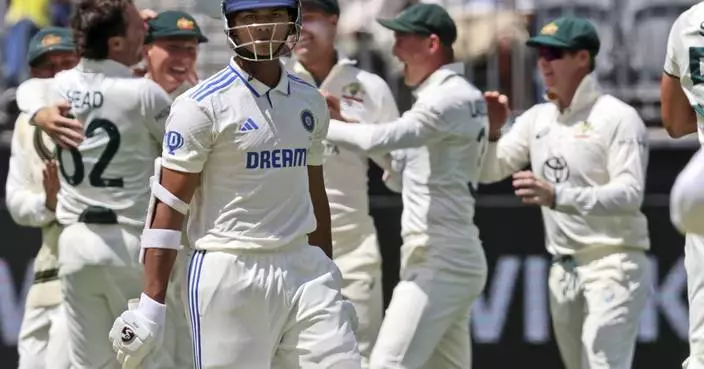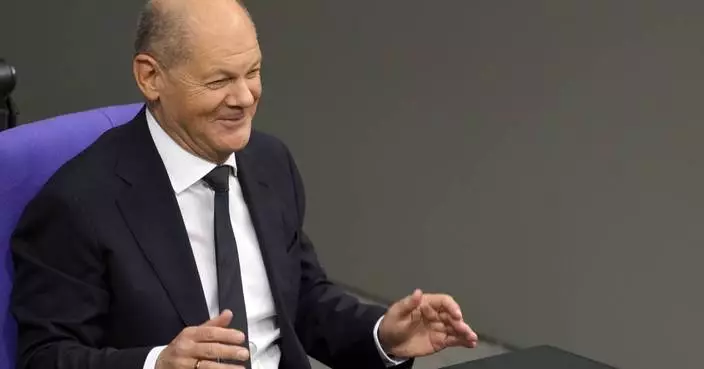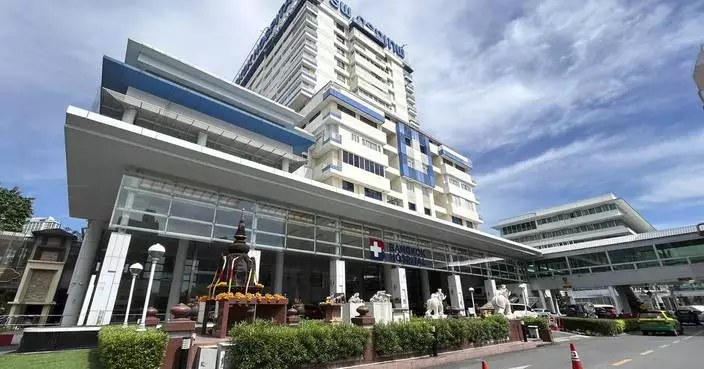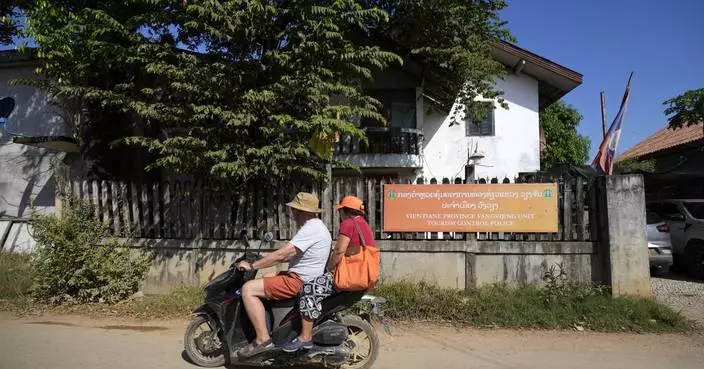SEOUL, South Korea (AP) — Russia has supplied air defense missile systems to North Korea in exchange for sending its troops to support Russia's war efforts against Ukraine, a top South Korean official said Friday.
The U.S., South Korea and Ukraine say North Korea sent more than 10,000 troops to Russia in October, some of whom have recently begun engaging in combat on the front lines. North Korea's troop deployment threatens to escalate the war, and what Russia could give to the North in return has been a source of rampant international speculation.
The most alarming development for South Korea and the U.S. would be Russia transferring sophisticated weapons technology that can enhance North Korea's nuclear-capable missiles targeting its rivals. Many experts say, though, that it is unlikely Russia would do this in the initial stage of the North’s troop deployment.
Shin Wonsik, national security adviser for South Korean President Yoon Suk Yeol, told an SBS TV program Friday that South Korea has found Russia provided missiles and other equipment to help it reinforce its air defense network for Pyongyang, the capital. Shin didn’t say what specific missiles Russia gave to North Korea.
Lee Illwoo, an expert with the Korea Defense Network in South Korea, said that Russia has likely sent S-400 long-range surface-to-air missiles, launchers and ground-based radar systems. He said that North Korea is capable of building shorter-range surface-to-air missiles on its own.
The S-400 missile, with a range of 400 kilometers (250 miles), is considered one of Russia’s most advanced anti-aircraft weapons. But Lee questioned how significantly it can boost Pyongyang’s air defense, saying Russian air defense systems have failed to effectively deal with Ukrainian drone assaults.
Many observers say North Korea has likely felt the urgent need to boost its air defense capabilities after it last month accused South Korea of flying drones to scatter propaganda leaflets over Pyongyang. North Korea threatened to take military action if leaflets were again dropped. South Korea’s military has refused to confirm whether or not it was behind the alleged drone flights.
Kim Dae Young, a military expert at the Korea Research Institute for National Strategy, said it’s possible that the air defense systems North Korea acquired from Russia could include counter-drone equipment.
Kim said that Pyongyang's outdated air defense system would need years of improvement and potentially huge external help to cope with the superior air forces of South Korea and the United States.
Shin said Russia has also appeared to have given economic assistance to North Korea and various military technologies, including those needed for the North's efforts to build a reliable space-based surveillance system. Shin didn’t say whether Russia has already transferred sensitive nuclear and missile technologies to North Korea.
During a summit with North Korean leader Kim Jong Un last year, Russian President Vladimir Putin already said that Moscow was willing to help the North build satellites. North Korea put its first spy satellite into orbit in November last year, but foreign experts question whether that satellite can produce militarily meaningful imagery. The North's attempt to launch a second spy satellite failed in May.
North Korea and Russia have been sharply boosting their military and other cooperation in the face of separate confrontations with the U.S. and its allies. Last month, South Korea's spy agency said that North Korea had sent more than 13,000 containers of artillery, missiles and other conventional arms to Russia since August 2023 to replenish its dwindling weapons stockpiles. The National Intelligence Service said Wednesday that North Korea had recently sent additional artillery systems to Russia.
Earlier this week, North Korea and Russia reached a new agreement for expanding economic cooperation following high-level talks in Pyongyang this week, according to the countries’ state-run media.
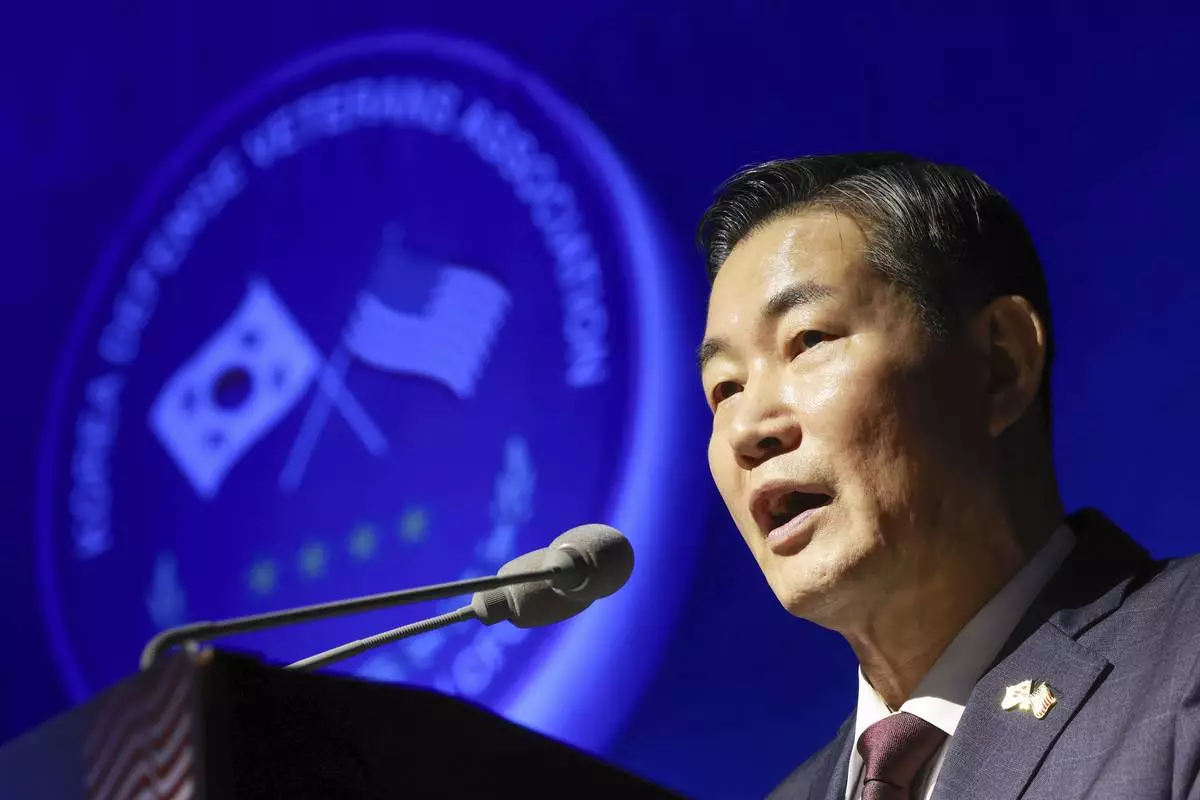
South Korea's National Security Director Shin Wonsik delivers a speech at a conference in Seoul, South Korea, Wednesday, Oct. 30, 2024. (Shin Hyun-woo/Yonhap via AP)
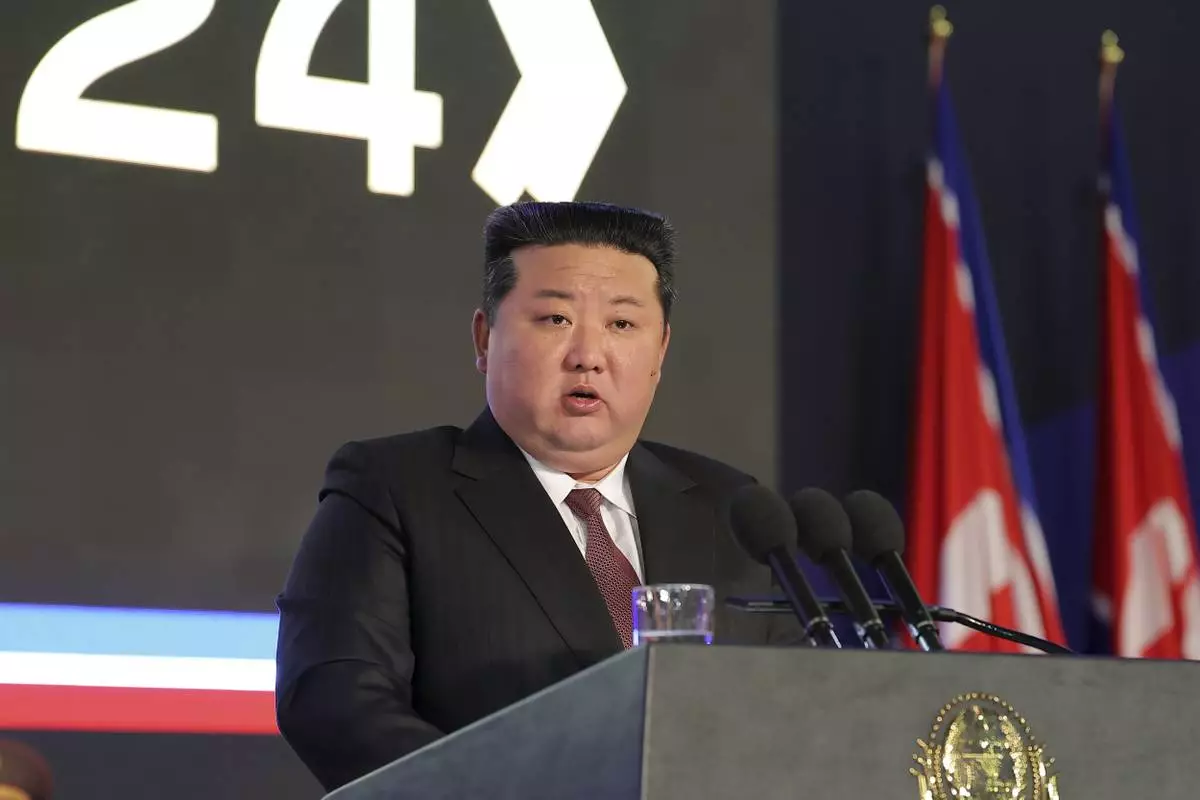
In this photo provided by the North Korean government, North Korean leader Kim Jong Un delivers a speech during an opening ceremony of a defense exhibition in Pyongyang, North Korea Thursday, Nov. 21, 2024. Independent journalists were not given access to cover the event depicted in this image distributed by the North Korean government. The content of this image is as provided and cannot be independently verified. (Korean Central News Agency/Korea News Service via AP)
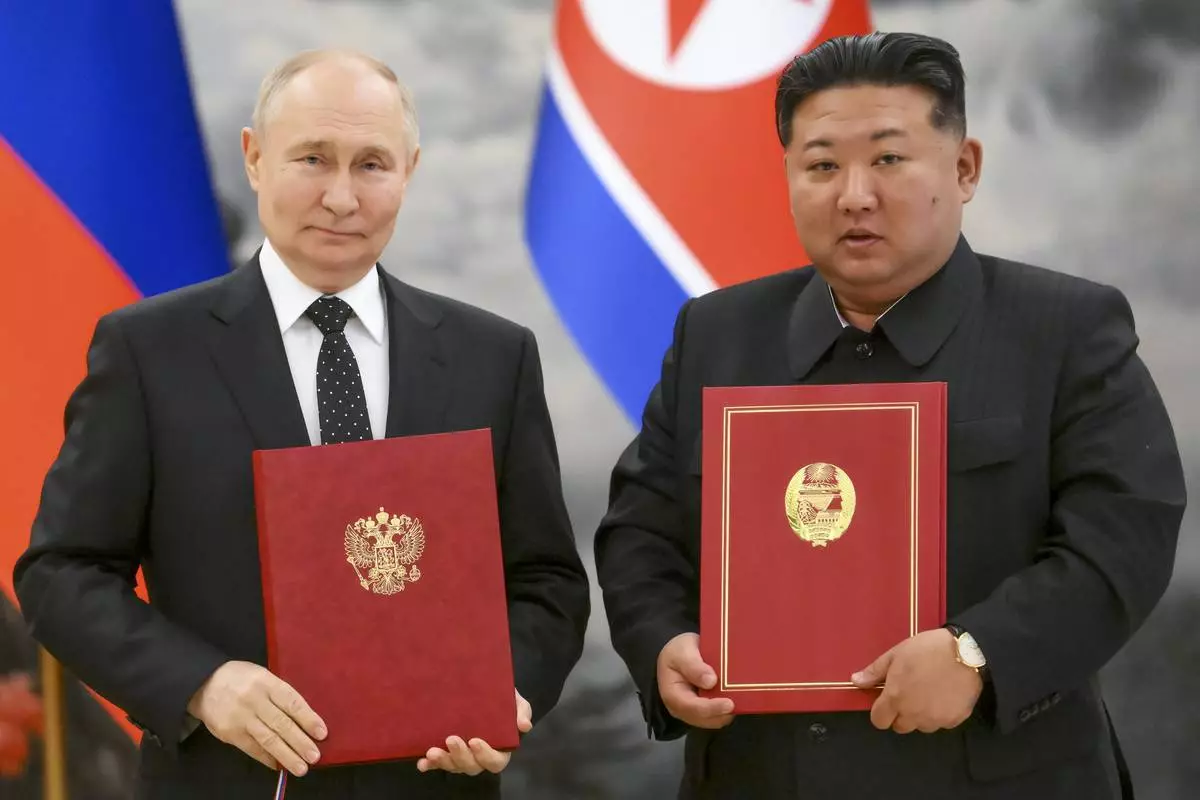
FILE - Russian President Vladimir Putin, left, and North Korea's leader Kim Jong Un pose for a photo during a signing ceremony of the new partnership in Pyongyang, North Korea, on June 19, 2024. (Kristina Kormilitsyna, Sputnik, Kremlin Pool Photo via AP, File)


